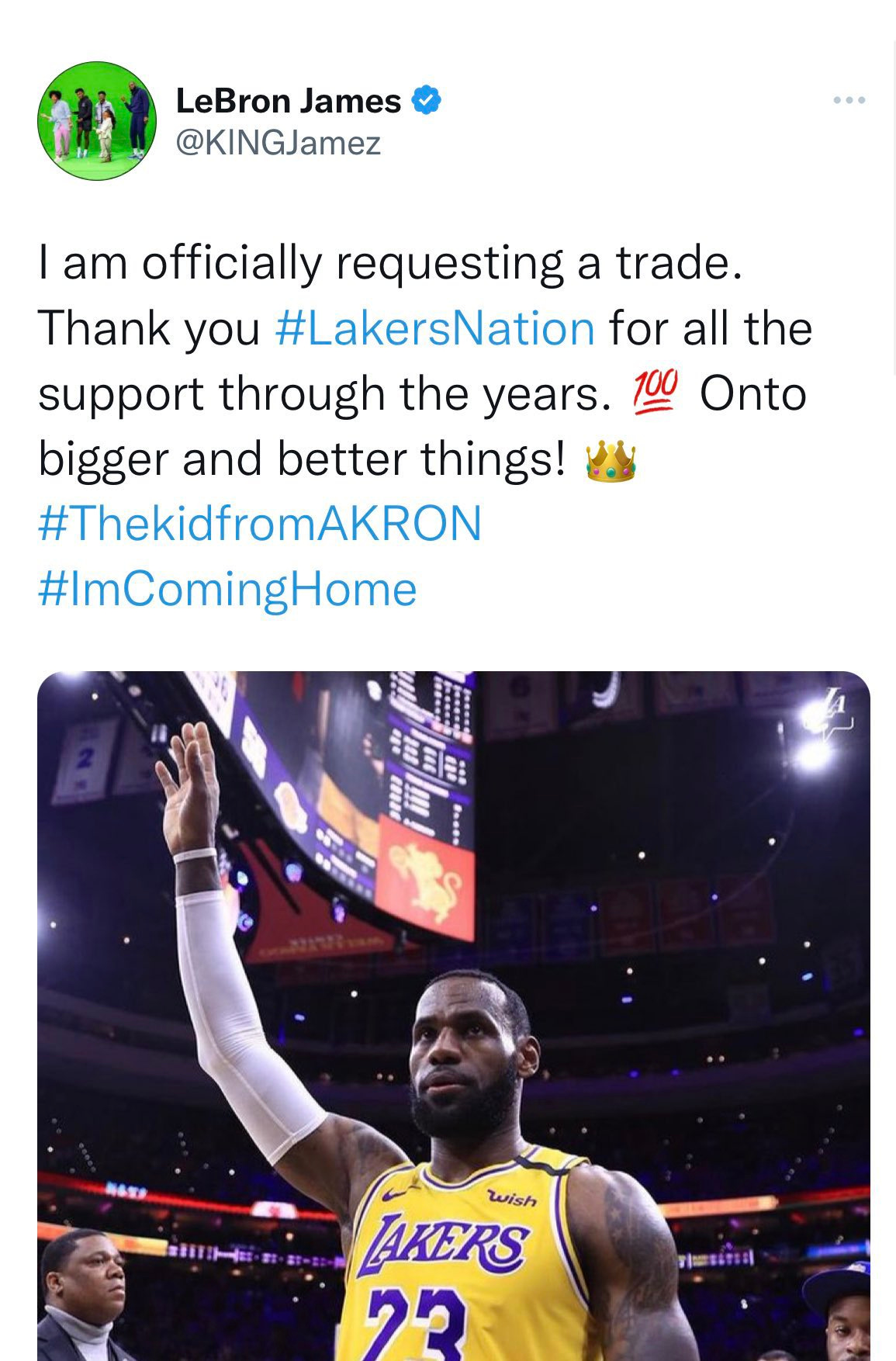The Blue verification check mark debacle
Ideas are great in our minds but not necessarily what the market wants
Fresh off his acquisition of Twitter, Elon Musk went on what to me seems like a revenue hunt. He had just paid roughly $44 billion to buy twitter and was eager to start working on improving the economics at Twitter.
I am not debating that Elon Musk is a successful and smart individual but he did screw up with his first action on product at Twitter.
The blue verification check mark for $8 may have seemed like a great solution to a problem that Twitter faces with fake accounts but it was not thought through well. It was quickly launched and many fake accounts were created with the verified blue check mark.
Here is an example below.
LeBron James’s real twitter account is @KingJames and not @KingJamez. Someone created the account as @KingJamez, paid the $8 to get the verified blue check mark, and tweeted a fake trade request. It is unlikely people will have noticed the small change in the name. This is how fake news spreads.
There were many of these accounts created across Twitter, and most were targeting high profile celebrities, politicians, and corporations.
So….richest human in the world walks into the room. He is now your boss. He orders you to build this feature. What do you do? YOU BUILD IT! I don’t know anyone who would have done otherwise. It is a common problem in product building and there are lessons to be learned by this very public mistake.
I want to focus on 3 key areas that this story triggers in my mind.
Great products require team work
“Most successful digital products today are conceived, designed, built, and delivered by a cross-functional team composted of product managers, designers, and software engineers”
-Continuous Discovery Habits by Theresa Torres
Cross-functional teams are an important aspect of successful product building. One person can not know what the market wants without doing all the work necessary. Sometimes a single person can get lucky but ultimately you need to have a well oiled product team to continuously build what the market wants, even they will get it wrong frequently. The hope is they get it wrong with low investment and get it right more frequently resulting in greater returns.
Empower your teams! Top down is not sustainable for most companies.
Testing is important
Even if you are forced to build some feature because of whatever reason. Testing a product/feature on a small scale before rolling it out widely is helpful in catching issues you otherwise would not have caught. Even more important than catching problems like the blue twitter check is to observe usage in the wild and track important metrics.
Once you are satisfied with a smaller test you proceed to go all out.
It is okay to make mistakes
When you get it wrong it should be okay. If you have a culture that sees the short comings of a roll out as a learning opportunity then your teams will truly be empowered. Creating great solutions comes through testing and iterating. Not being scared of accepting something didn’t work and moving on with the learnings.
That’s it! Go create great products! :-)

